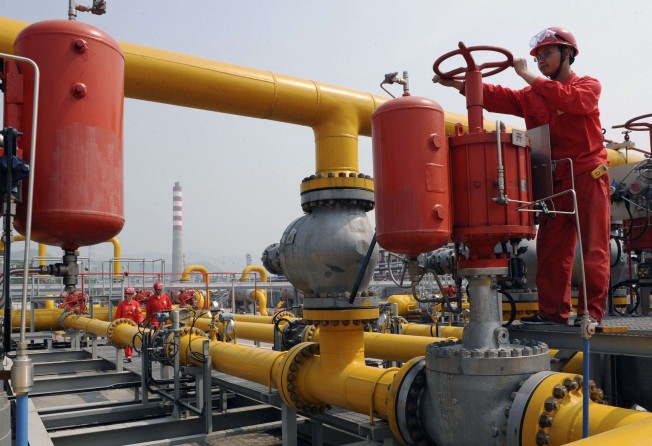China Life, State Development & Investment Corp pour 22.8 billion yuan into Sinopec’s gas pipeline
China Life will buy 43.86 per cent of the Sichuan-to-East China pipeline and SDIC will purchase 6.14 per cent, leaving Sinopec to hold 50 per cent

China Life Insurance, the nation’s largest life insurer, has teamed up with SDIC Communications, an infrastructure unit of central government-backed investment firm State Development & Investment Corp, to invest 22.8 billion yuan in one of China Petroleum & Chemical (Sinopec)’s gas pipelines.
The introduction of the two external investors into one of the oil and gas giant’s prime assets is in line with Beijing’s state-owned enterprises reform policies aimed at improving corporate governance and efficiency, according to Sinopec.
The company said in a filing to Hong Kong’s stock exchange late on Monday: “Raising funds for future development of the Sichuan-to-East China gas pipeline project through the injection of external capital will promote the development of the natural gas business of Sinopec.
“By introducing external investors, the corporate governance structure will be further improved and the market-oriented reforms will be promoted to facilitate sustainable and steady development of
Sinopec.”
The two investors have pledged not to sell their stakes for at least one year unless they have the consent of the other shareholders.
China Life will buy 43.86 per cent of the Sichuan-to-East China pipeline and SDIC will purchase 6.14 per cent, leaving Sinopec to hold 50 per cent. The pipeline’s results will no longer be consolidated into Sinopec’s books after the sale, according to the company’s statement.
The sale marks the second major asset stake sale by Sinopec in response to Beijing’s reform call.
Just over two years ago, it agreed to sell 30 per cent of its fuel marketing operation and fuel station network to 25 domestic and foreign investors for 107 billion yuan.
Most were institutional investors like insurance firms, but they also included some corporate investors like gas distributor ENN Energy which is one of the company’s business partners.
China Life bought 2.8 per cent of the marketing assets sold.
Gas pipeline assets and fuel marketing operations provide long-term, steady income streams, which are sought after by institutional investors like pension funds that need to match their investment income with payouts to beneficiaries.
Gas pipeline fees are regulated by state pricing formulas, while fuel distribution in mainland China is dominated by two state-backed firms with limited competition from other players.
Sinopec’s rival PetroChina, the nation’s largest gas producer and distributor, has also sold major stakes of its biggest gas pipelines to external investors in the past few years.
It helped the energy giant lower debt as oil prices plunged and crimped upstream oil and gas production profits, and raise funds to finance costly construction of energy distribution infrastructure.
Sinopec last August said its board had approved a plan to divest half the Sichuan-to-Shanghai pipeline that sends gas from its fields in Sichuan province to central and eastern China, to raise funds for expanding the pipeline’s transmission capacity.
Chairman Wang Yupu said at the time the firm was aiming to almost double gas output to 40 billion cubic metres in the five years to 2020, an average annual growth of 14 per cent.